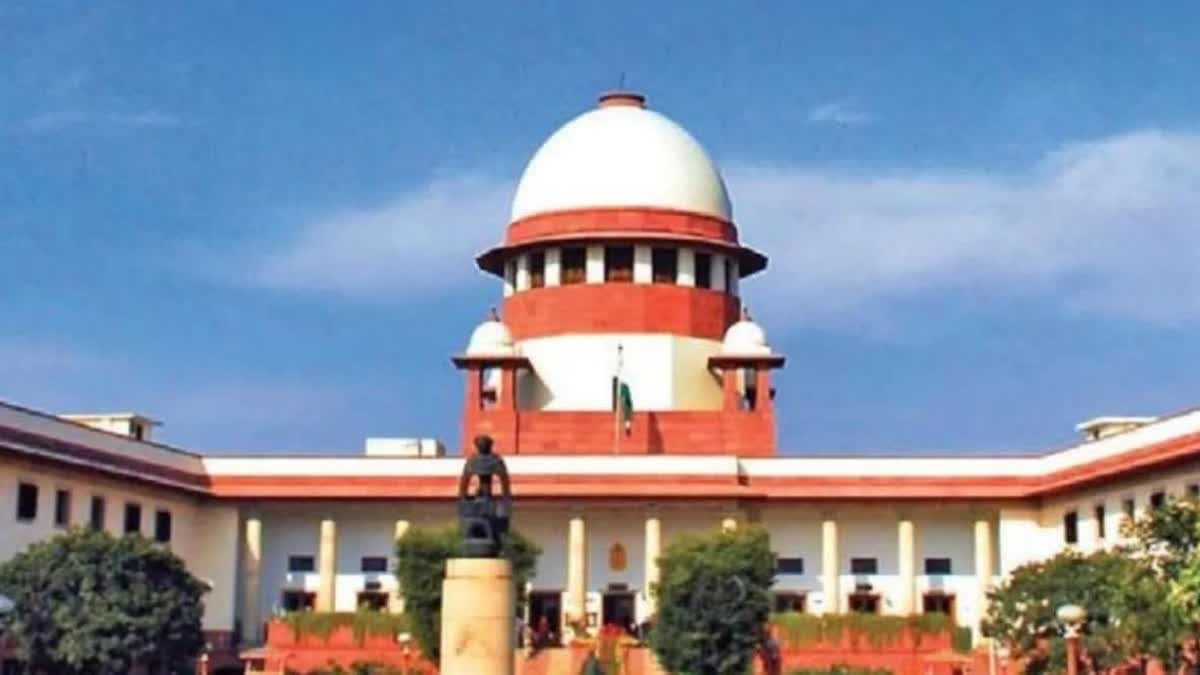New Delhi: In a significant development, the Supreme Court on Friday said that children born out of void or voidable marriages can claim rights on their parents' ancestral property in joint Hindu families following the Mitakshara system of law. A bench headed by Chief Justice of India D Y Chandrachud and comprising justices J B Pardiwala and Manoj Misra said that a child under Section 16(1) and Section 16(2) of the Hindu Marriage Act (HMA) would be legitimate kin under the Hindu Succession Act (HSA).
Last month, the Supreme Court reserved its verdict on a 2011 plea pertaining to the vexatious legal issue of whether non-marital children were entitled to a share in the ancestral property of their parents under Hindu laws. The bench confirmed legitimacy in terms of subsection 1 on a child born from a void marriage and under subsection 2 to a child born from a voidable marriage, which has been annulled.
The bench said the legislature has stipulated in subsection 3 of Section 16 that such a child will have rights in the property of parents and not in the property of any other person. “While construing the provisions of section 3 (1) (j) of HSA, 1956, including the proviso, the legitimacy which has been conferred by section 16 of HMA, on a child born from a void or as the case may voidable marriage has to be read into the provisions of HSA, 1956.
In other words, a child is legitimate under subsection 1, subsection 2 of Section 16 of HMA would for the purpose of section 3 (1) (j) of HSA, fall within the ambit of the explanation related by legitimate…..and cannot be regarded as an illegitimate child for the purpose of inheritance to ancestral property ”, said the bench. Advocate Nikhil Majithia, representing Eshwarachari and others, had submitted before the top court that Section 16 HMA intended to protect and provide legal status to children born from void or voidable marriages and that the intention of the Parliament has been expressly declared pursuant to the 1976 Amendment to the HMA.
He said it is significant to point out that a limited category of persons has been sought to be conferred a legal status, i.e. children born from void or voidable marriages. Majithia had urged that the apex court may declare children born from void or voidable marriages as provided in Sections 11 and 12 of the HMA as coparceners, who shall be entitled to a share in ancestral property as per rules of devolution.
A voidable marriage is one that is made invalid by the husband or wife through a decree. A void marriage is invalid at the very inception. Mitakashara law of succession governing Hindu Undivided Families applies to the whole of the country except West Bengal and Assam.
The top court said, “For the purpose of ascertaining the interest of a deceased Hindu Mitakshara coparcener, the law mandates the assumption of a state of affairs immediately prior to the death of the coparcener namely, a partition of the coparcenary property between the deceased and other members of the coparcenary”.
A coparcener is a person who acquires a legal right to his ancestral property through birth in a Hindu Undivided Family (HUF). The bench said that once the share of the deceased parent in the property is ascertained through a notional partition, his heirs, including his children from void or voidable marriage, would be entitled to their portions in the share.
“Once the share of the deceased in property that would have been allotted to him if a partition had taken place immediately before his death is ascertained, his heirs including the children who have been conferred with legitimacy under Section 16 of the HMA 1955, will be entitled to their share in the property which would have been allotted to the deceased upon the notional partition, if it had taken place”, said the Chief Justice, who authored the judgment on behalf of the bench.
The top court said the provisions of the HSA have to be harmonized with the mandate in Section 16(3) of the HMA which indicates that a child who is conferred with legitimacy under sub-sections (1) and (2) will not be entitled to rights in or to the property of any person other than the parents. “The property of the parent, where the parent had an interest in the property of a Joint Hindu family governed under the Mitakshara law has to be ascertained in terms of the Explanation to sub-section (3)”, said the bench.
The bench said the interest of a Hindu Mitakshara coparcener is deemed to be the share in the property that would have been allotted to him if a partition of the property has taken place immediately before his death irrespective of whether or not he is entitled to claim partition.



